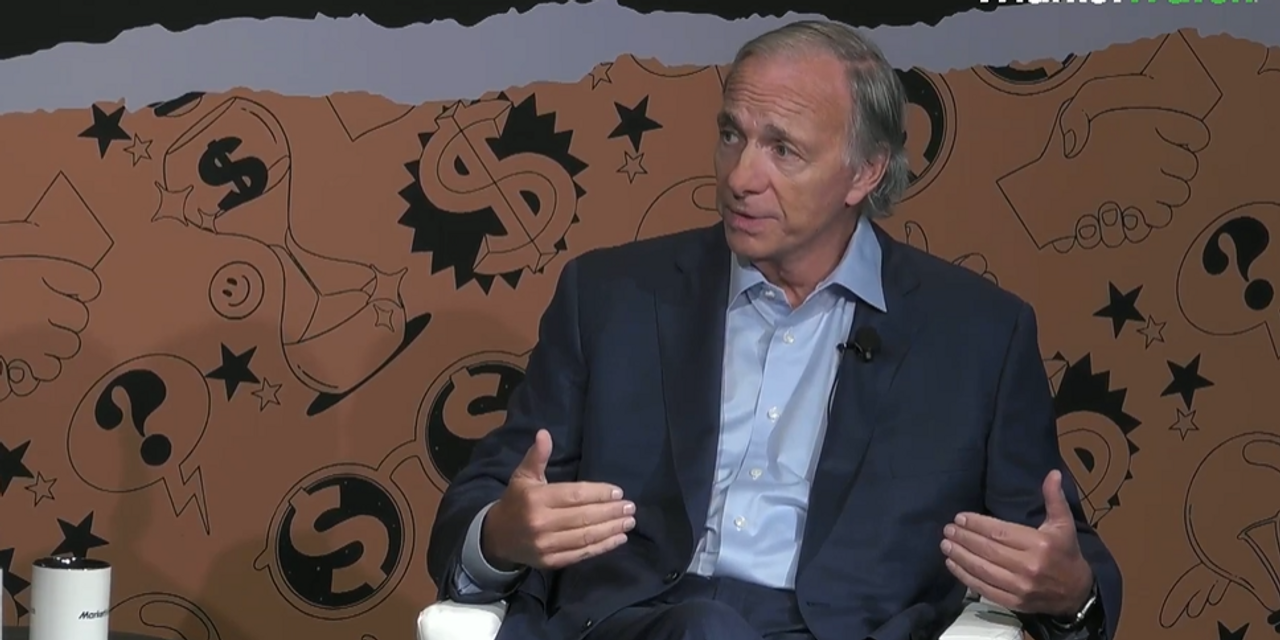When MarketWatch first started publishing financial news and data 25 years ago, Bridgewater Associates was a little-known hedge fund firm that was overshadowed by other macro investing trading operations, like George Soros’ Quantum and Paul Tudor Jones’ Tudor Investments. In 1997, Bridgewater had grown a bit from its early days, when Ray Dalio ran it out of his two-bedroom New York apartment, but Dalio’s name didn’t appear in MarketWatch for the first few years of our existence.
That would change. Bridgewater grew rapidly and Dalio distinguished himself during the financial crisis, when his firm made money for its investors while most hedge funds crashed. MarketWatch reported how Bridgewater’s main hedge fund climbed 9.4% in 2008 and 2% in 2009.
With a unique investment style that synthesized computer algorithms with human decision-making, Dalio built Bridgewater into the biggest hedge fund firm in the world. It essentially offered clients a macro hedge fund, known as Pure Alpha, and an All Weather product that aimed to perform well in good markets and bad.
MarketWatch continued to cover Dalio’s ascent to the top of the financial world. At age 73, he relinquished control of the hedge fund firm he built last week.
As MarketWatch turns 25, we wanted to ask Dalio what he thinks we will be covering for the next five years. Here are his lightly edited thoughts.
What do you think that you’ll be reading in MarketWatch in the next five years?
Dalio: You are going to be talking about the value of money, the diminished value of money. You are going to be talking about low returns. You’re going to be talking about restructuring the way things are being done. You’re going to talk about internal political conflict in a greater way than we’re now hearing about it. And I think you’re going to be talking about external political conflict — the change in conflicts and power internationally.
There’s not enough money to go around and so there’s no limit to the creation of debt and monetization of money to devalue the value of debt in money so debt assets are going to be bad investments. In that environment you are going to have more inflation as an issue. And so we’ll be talking about the value of money. We’ll be talking about the internal conflict that comes from the politics and the problems that come when there are large wealth gaps and there’s not enough money. And I think we’ll be talking about the changing world order that comes from global political conflicts between countries as there is a greater competition and could be greater conflicts in various ways.
What opportunities do you see today that you think might be more clear in the next five years?
Dalio: Innovation. The really one great force that exists today is man’s ability to invent because not only do we think better, but we also have created tools that help us to do that. Artificial intelligence, computerization of thinking, allows us to make revolutionary changes at a pace that’s faster than we’ve ever seen. You’re going to see a lot of revolutionary changes in all dimensions of life. I think you’re going to see it in healthcare. I think you’re going to see it in every dimension of life and that’ll be the bright spot.
What do you fear you will be reading in MarketWatch in five years?
Dalio: I fear that there’s not enough money for the needs that we have to take care of, to deal with the wealth gap, deal with the green environment, deal with defense, rebuilding the Ukraine, and all of those things. So I fear, with that, there will be greater conflict over the money. I fear how we are going to be with each other in a strenuous environment where there are those kinds of challenges. So that’s what I fear the most.
Where will the market opportunities be over the next five years?
Dalio: I think the opportunities are going to come in different regions. That as we look at the world, we have to recognize that there are bright spots and there are less bright spots, and places like emerging Asia, places such as Singapore and Vietnam and Indonesia and places like that are bright spots. India, I think, is going to be a brighter spot.
I think also certain types of assets that diversify portfolios. Portfolios are too concentrated in equity-like assets, they go up and down together. I think we’re going to see a bright spot coming in terms of better portfolio construction to create better balanced portfolios, to have less volatility and to move through that. We’re going to see more attention paid to inflation-adjusted returns than nominal returns. I think that those are all improvements in investing, and I do think that finding the right innovations and investing in that. We are in an environment where there is the greatest entrepreneurship and the greatest inventiveness that is going to create these revolutionary changes. And I think that that’s a bright spot for investing.
What do you fear we’ll be reading about financial markets in the next five years?
Dalio: I fear that in the financial markets, in the next five years, we will be reading about the negative or poor real returns in much the same way as we had in the 1970s. You asked me a lot of questions about what is the worry and what are the opportunities. And I want to say that I think a lot is in our hands depending on how we are with each other, most importantly. I have a principle, if you worry, you don’t have to worry. And if you don’t worry, you need to worry. Because if you worry about the conflict issue and you worry about being financially sound, then you will adapt to those things and you’ll make a better future. And if you don’t worry about those things, if you don’t worry about the wealth gap, if you don’t worry about the conflicts and all of that, then you’re more likely to have those conflicts, which causes things to be much worse.


